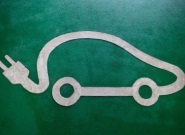Enel X, the Enel Group business line dedicated to innovative energy services, has obtained the green light from the European Commission to develop three projects presented within the framework of the second IPCEI (Important Project of Common European Interest) created to support the European battery industry, which sees the participation of 42 European companies. Enel X projects span applications in the fields of electric mobility, large stationary storage systems and the sustainable end-of-life management of lithium batteries.
"In addition to making an important contribution to the decarbonization of consumption, electric mobility represents an opportunity to develop the Italian industry for the production, development and reuse of batteries," said Francesco Venturini, CEO of Enel X. "Through the technologies developed by Enel X, the projects presented under the second IPCEI represent our contribution to improving the sustainability and efficiency of storage systems and their integration into the power grid, encouraging a circular economy model that is in keeping with the aims of the Green Deal. Enel X was one of the first companies to focus on the enormous potential that the growth in the use of storage systems, combining technology, environmental sustainability and efficiency, represents."
Specifically, the first project is mainly focused on electric mobility and involves funding for the industrial research and experimental development of high-power charging infrastructure integrated with energy storage systems. The aim is to promote the development of ultra-fast charging solutions that proactively respond to developments in the market by having access to more powerful chargers in order to shorten recharging times while appropriately managing the balancing requirements of the medium-voltage electricity grid. The innovative, modular and efficient charging infrastructure is designed to use DC and will offer ways to provide grid services by means of integration with the battery. Vehicle to Grid (V2G) technologies and the integration of electric vehicles into the grid make it possible to establish a virtuous circle in order to support greater penetration of renewables and the decarbonization of transport with a view to an increasingly electrified future. This solution will help couple the deployment of electric vehicles with their integration within the power grid, minimize the installation time of charging infrastructure and leverage on the reduction in the cost of energy storage systems by improving the economic efficiency of the sites concerned. Furthermore, the use of second-life batteries at certain pilot sites will make it possible to develop an architecture that is not only innovative but also fully sustainable and in line with the principles of circular economy.
Enel X also presented a project related to the development of optimization software for industrial-size storage systems, which will also develop machine-learning models for the use of second-life batteries. The software developed will make it possible to optimize the sizing of plants and the operation of the batteries concerned, maximizing the use of energy from renewable sources and the application of the principles of circular economy. Furthermore, Enel X will develop and test industrial solutions relating to logistics, transportation and storage, automation of disassembly processes, and recycling of batteries when electric vehicles, which are estimated to amount to some 60,000 tons/year by 2030 in Italy alone, and large storage systems for stationary use reach the end of their useful lives. The project will be developed in collaboration with other companies and research organizations participating in the IPCEI, including ENEA, Italy’s public research body coordinating the Italian Battery Alliance alongside participating in all European RD&I activities on batteries and MIDAC, a leading battery manufacturer which will be responsible for developing industrial applications in the framework of the project. This initiative lays the foundations for a new, sustainable and competitive national battery industry — further confirmation of the importance and opportunities that the implementation of energy circularity represents.
Enel X had previously participated last year in the first IPCEI on batteries, which the saw the participation of 17 companies operating in the sector, with a project approved by the European Commission. The IPCEI battery programs follow the European Commission's launch of the European Battery Alliance in 2017 and the subsequent adoption in May 2018 of a strategic action plan to promote the development of a European battery industry, given the key role that batteries play in the energy transition. The initiative promotes the development of highly innovative and sustainable technologies for lithium-ion batteries designed to extend their lifespans, reduce their charging times, and make them safer and more environmentally friendly.


